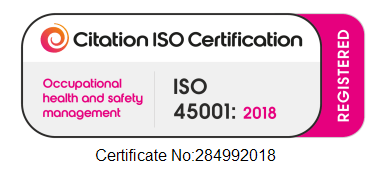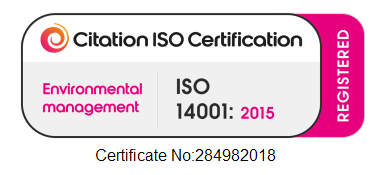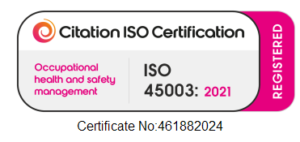
It has now become more strategic for organisations to practise employee experience management in order to create a workplace that thrives.
As the concept of work progresses, it becomes paramount to focus on the experience of the employees as organisations seek to gain a competitive advantage in hiring the best talent.
For a company to attract the best staff in a competitive market, it’s key not only to pay people well, but also provide quality services that mean engaged employees feel valued and enjoy working there.
According to Gallup’s State of the Global Workplace: 2023 Report, disengaged employees cost $8.8 trillion (£6.6 trillion) worldwide in lost productivity, nearly 10% of global GDP.
Companies that invest in employee experience management are 4x more profitable than those that do not, according to Jacob Morgan, author of the Employee Experience Advantage.
In this article, we explain what employee experience management is, why it matters, and how businesses can improve it.
Plus, you may be wondering about the link between employee experience management and our expertise in professional cleaning for businesses. We’ll explain everything by the end of this guide.
Key takeways: Employee experience management
- Employee experience management encompasses a range of interactions from recruitment to offboarding – first impressions during the onboarding process are critical for employee retention
- Encouraging work-life balance and promoting flexible work arrangements can improve employee satisfaction and retention
- Employees who are satisfied with their workplace applications are more likely to stay with their organisation – offering personalised development plans can improve employee retention and satisfaction
- Creating direct communication channels between leadership and employees builds trust and makes employees feel valued.
- Using journey mapping through employee polls or pulse surveys can help measure employee sentiment at various touchpoints
- Employees are unlikely to see a clean office as a key motivational reason to go to work… But many of them will be unhappy and not want to come in if it’s unclean!
What is employee experience management?
Employee experience management is a practice of how organisations manage and optimise the experience for their employees.
- This means any interaction that a worker undertakes in his or her organisation right from the point of employment up to the point of termination of their contract.
- It covers the psychological, vocational, and interpersonal implications of being employed in an organisation.
- If implemented correctly, it increases the employees’ morale, productivity and reduces staff turnover rate.
There are lots of ways to increase productivity at work. A particularly fun one involves a furry mascot – learn about the best office pets to boost workplace productivity!
Employee experience management in the modern workplace not only comprises the practices of human resource management. It examines the needs and the expectations of employees in order to fulfil them through satisfying experiences.
Such experiences depend on the environment in which the worker is placed such as the physical environment of the work setting, the workers’ organisational culture, leadership styles, and technology adopted in the working environment.
Employee experience management is the best way through which organisations can ensure that they provide their employees with an experience, which will lead to satisfaction and loyalty, so in turn they offer their best to the organisation.
- Employee experience refers to the experience employees have of their workplace, the organisation, and it is seen in every interaction an employee has with an organisation.
- This ranges from their working activities, interactions with other employees, reporting to the management and using organisational resources and technologies.
This means that employee experience can be altered by such factors as company policies, opportunities within the company as well as the design of the workplace.
In one of our previous blogs, find out how to improve staff morale with a clean space.
The importance of positive employee experience management
Implementing and managing employee experience has the following advantages for both the employee journey and the organisation. The employee journey has 7 stages: recruitment, onboarding, engagement, performance, development, retention, and exit.
These feelings of workplace positivity result in enhanced levels of employee engagement and increased levels of commitment to achieving organisational objectives.
This not only enhances personal performance, but it also helps the organisation to achieve its business goals – for example, improving customer satisfaction. A positive employee experience can also significantly improve customer satisfaction ratings.
- Attracting and retaining talent: The modern candidate is much more than a mere job seeker looking for a source of income and a pleasant working environment. They want to be associated with organisations that acknowledge their worth, invest in their development, and provide a healthy organisational environment.
- Boosting company performance: A well-managed employee experience can have a direct impact on an organisation’s bottom line. When employees are engaged and motivated, they are more productive, which translates into better business performance.
- Improved employee engagement: Subsequently, one of the major benefits of implementing the principles of good employee experience management includes increased engagement among employees.
In other words, providing a solid employee experience is one of the major assets that can help attract top talent. Also, it serves the aim of maintaining employees’ satisfaction levels and ensuring they are happy in their workplace.
There are lots of ways to do this, ranging from long-term initiatives such as continued professional development (CPD) programmes to short-term ideas like indoor team building activities.
There is also evidence that employees are more satisfied and less inclined to leave organisations with high engagement with the company and business performance is also higher among companies with increased engagement levels.
So a strong employee experience reduces turnover, which can save the company significant costs related to hiring and training new employees.
How to improve your employee experience strategy
Improving employee experience management requires a strategic approach that addresses the needs and expectations of employees at every stage of their journey with the organisation.
This process involves understanding the factors that influence employee experience and taking actionable steps to improve them.
- Setting the tone in leadership and management: Organisation leaders have the key responsibility of developing the employee experience programs. The organisations’ managers & leaders require to be accessible, encouraging & clear in their communication.
- Investing in employee development: Opportunities for growth and development are essential for a positive employee experience. Employees want to feel that they are progressing in their careers and that their contributions are recognised. This can include offering training, mentorship programs, and opportunities for CPD.
- Using technology: With the rise of remote and hybrid working, organisations need to ensure that employees have access to the right technology that enhances their work experience. This includes providing user-friendly tools that make communication, collaboration, and task management easier.
Sometimes it’s the finishing touches and little details that can make all the difference to the employee experience.
For example, research from Tork found a connection between a clean workspace and the employee experience:
- 86% of office employees see cleanliness as the most important criteria of a good workplace
- 67% of employees are more likely to complain about unclean washrooms than any other aspect of an office
Therefore, when looking to improve the employee experience, make sure you’ve covered the basics.
Employees are unlikely to see a clean office as a key motivational reason to go to work… But many of them will be unhappy and not want to come in if it’s unclean!
For more details, here are the benefits of maintaining a clean office space for employees.
Final thoughts: Measuring the employee experience
The foundation of improving employee experience starts with listening to employees. And to effectively manage and improve employee experience, it’s essential to measure it regularly.
This involves tracking key metrics such as employee engagement, turnover rates, and feedback from employee surveys. By monitoring these metrics, organisations can identify trends, pinpoint areas that need improvement, and take action to address them.
By monitoring these metrics, organisations can identify trends, pinpoint areas that need improvement, and take action to address them throughout the employee lifecycle. The employee life cycle refers to the sequential milestones the employee experiences at an organization.
Regular employee feedback is a valuable tool for measuring employee experience.
- Surveys and feedback platforms allow employees to share their thoughts and experiences, providing organisations with valuable insights into what is working and what needs to be improved.
- Exit interviews can provide valuable information about why employees leave and how the organisation can improve retention.
By focusing on creating a positive work environment, listening to employees, and investing in their growth and development, businesses can enhance employee satisfaction, engagement, and retention. In turn, this leads to better business performance and a stronger company culture.
Organisations that prioritise employee experience management will be well-positioned to attract top talent and build a thriving, motivated workforce.
As mentioned, don’t overlook the basics. A consistently clean office is just a sole part of a positive employee experience, but it’s an important one.
We provide the office cleaning services London companies with the highest standards are looking for.
We provide outstanding daily office cleaning London businesses throughout the capital trust and rave about. To see what we mean, take a look at the Think FM reviews on Google.
And for more information about our services please don’t hesitate to get in touch.
share this article











